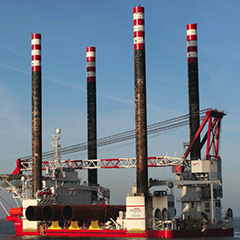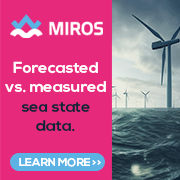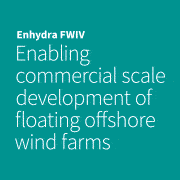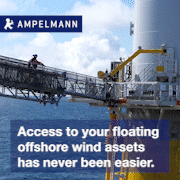A company with a reputation for peerless customer service and the ability to locate craft that will fulfill the most demanding situations, German Renewables Shipbrokers GmbH is a shining light in the offshore industry. We put the questions to the company’s Matthias Mroß.
PES: Welcome to PES magazine. Would you like to introduce the company to our readers and explain how you serve the wind industry in Europe?
Matthias Mroß: German Renewables Shipbrokers (GRS) is an independent ship broker for chartering and sales and purchases tailored to the offshore renewable energy market. GRS provides its clients with a bespoke support that reaches far beyond traditional shipping issues and solutions.
A comprehensive service provider, GRS combines knowledge from two very different worlds; a ship broker with excellent contacts in the international offshore shipping industry, together with a command of the technical aspects of building and operating special-purpose vessels.
PES: When did you decide to begin targeting the wind industry, and has it been a successful diversification?
MM: The company was founded in 2011 as one of the first offshore ship brokers purely concentrating on the renewables market. Today, a team of 12 employees/brokers have excellent contacts with all mayor clients, projects and owners within the renewables industry and draws on in-depth technical expertise at the same time.
PES: We see that you’re involved with WINDTIME. Can you tell us a little about this?
MM: GRS was one of the first brokers to specialise in using the Bimco’s WINDTIME. Up until now the industry had been using Bimco’s SUPPLYTIME standard charter party. However, this was primarily intended for the oil and gas sector and therefore needed to be amended.
GRS is set to further increase its use of the specialised time charter party called WINDTIME, designed and tailor-made for the offshore wind industry. WINDTIME mainly addresses the requirements of the small high-speed vessels or crew transfer vessels used to transfer technicians to and from shore and within the wind farms. In close collaboration with charterers and owners, we adjusted the SUPPLYTIME for each charter party, and now these adjustments have been largely incorporated into the new WINDTIME contract. We expect that WINDTIME will gradually become the new standard form of contract for CTVs in the offshore wind industry.
PES: Your customers are located all over the world, while you manage your business from Hamburg. What made you opt for Hamburg as your headquarters?
MM: Hamburg has developed into the capital of Europe’s wind offshore energy market and has attracted main suppliers, like Siemens, leading manufacturers and other companies involved in this industry to settle here. Hamburg also has a strong onshore wind energy background and in 2014, the onshore and offshore wind industries will be meeting at the international exhibition WindEnergy Hamburg. Another advantage is that the city is located between the North and the Baltic Sea, and we are involved in offshore renewables projects in both.





























